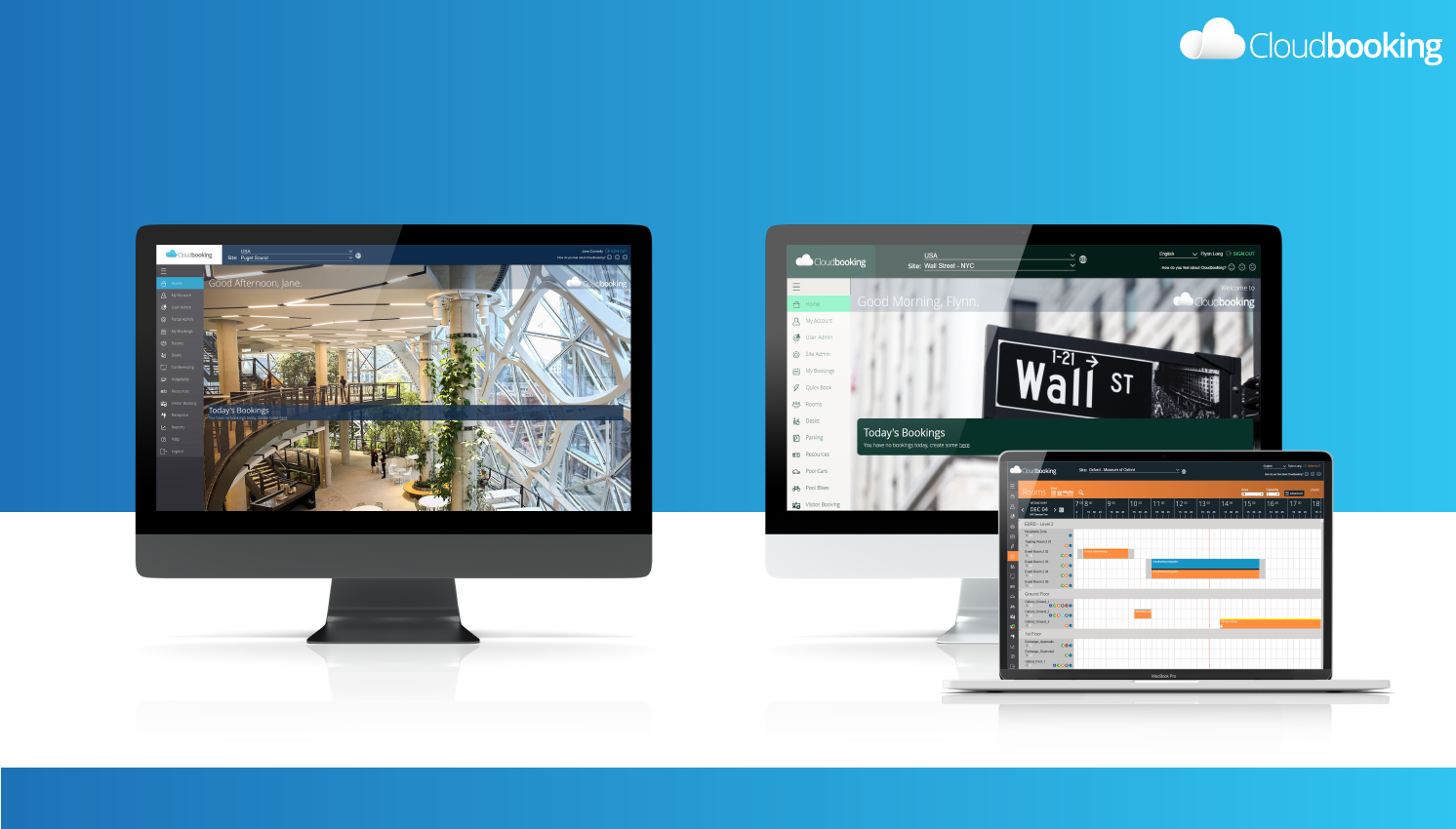
As the digital age has grown and modernised, many traditional business models have had to shift to keep up with the times. One of those adjustments is a move towards remote work. Remote teams — whether fully remote or more of a hybrid model — offer businesses an array of pros, including increased employee satisfaction, productivity boosts and cost savings.
However, they can also be challenging to maintain when it comes to workflow and culture cultivation. To ensure your organisation’s remote work environment is always productive and resilient, it’s important to lay the foundation of a sustainable work culture for success.
What is work culture?
Positive work culture is a crucial element of any successful organisation. It’s more than just policies and regulations; it’s a reflection of corporate identity and the working atmosphere, which can majorly affect employee morale and job satisfaction.
Good workplace culture is built upon:
- Trust between colleagues and management
- Clear communication
- Meaningful feedback
- Empowering activities that encourage further collaboration
- Opportunities to learn and grow
- Respect for each individual in the team.
A healthy company culture ultimately leads to better performance by creating an environment of autonomy that encourages creativity and innovation.
Related reading: 8 Takeaways from Cloudbooking’s Research on the Future of the Workplace
The challenge of remote work culture
Despite the remote work setting offering employees more flexibility, it doesn’t necessarily give them the benefit of understanding their co-workers in a better way. Each remote worker only gets an insight into their individual roles and their team’s work style, attitude, skills and abilities but not those from other teams or departments.
Home offices are incomparable to the physical environment at a workplace as the company does not have control over the remote settings. Therefore, remote work culture can be difficult to promote without team members working together in person. Building a strong remote work culture is essential, even when workers are distant from one another, as this lays the foundation for team creativity and growth.
Related reading: The Future of Working from Home: Hybrid Office or Remote Work?
Practical ideas for building a sustainable remote work culture
An effective remote work culture is integral for success in a remote work environment. However, building an environment that promotes collaboration, productivity, and connection among remote employees takes dedicated effort and focus. As such, it is important to create a remote culture strategy to capture your company’s ongoing mission and values.
A consistent remote culture will empower remote employees to become more engaged, feel more connected, develop stronger relationships with co-workers, and appreciate the value they provide. Establishing a strong remote work culture is more than just a checkbox task; it can be leveraged as an effective tool for recruitment, marketing, and retention of driven and enthusiastic remote workers.
Let’s look at 11 of the most impactful ideas for building a sustainable remote work culture.
1. Establish clear communication protocols
Creating remote work communication standards is essential for keeping a remote work culture running smoothly. Not only does it help HR and recruiters identify the right hires, but it also allows employees to know what is expected of them.
Setting expectations helps companies hold their remote workforce responsible. Preferences such as channels to use, response times and whether cameras should be used on video calls should all be communicated.
Keeping everyone informed not only contributes to better productivity but can ensure a healthier remote work culture overall.
2. Launch company traditions
Creating company traditions can be a great way to build remote work culture. Consider organising monthly team-building sessions that allow remote employees to come together in one place or have remote employees meet up for virtual activities. Not only does this create something for remote teams to look forward to, but it also helps to establish a routine within the remote work environment and foster team spirit.
While there’s no one-size-fits-all approach to creating remote work culture, having a few traditions can help remote workers feel connected with their colleagues and more invested in the company.
3. Avoid an intrusive remote work culture
Aim for fewer meetings and make it clear that your remote staff does not have to continuously prove their commitment to the company by responding to requests immediately. Establish times when remote workers should expect responses from you, but also provide them with the flexibility to focus on their work when needed.
Creating a trusting remote work environment will show your remote employees you value their work and are committed to fostering an atmosphere where they can dedicate themselves fully to productive tasks.
Related reading: How to Support Work-Life Balance for Employees: The Ultimate Cloudbooking Guide
4. Get regular feedback
It is imperative to regularly ask for feedback in a remote work dynamic. Doing so will help you identify potential remote culture issues before they become a bigger problem. Asking for feedback can take several forms. They can be regular surveys or verbal requests that happen during one-on-one meetings.
They can even take the form of dedicated feedback sessions with teams. With tools like Culture Amp, gathering feedback has never been easier or more collaborative. Asking for feedback is essential, enabling remote work cultures to grow and develop.
5. Socialising events
With remote work becoming more and more commonplace, remote employees miss out on face-to-face interaction with their team members. That’s why organised events like virtual coffee breaks and happy hours are so useful. They can be a great way to boost remote work culture and allow remote workers to chat, vent, have fun, and connect regularly.
It’s also great for encouraging remote employees to come together online to bond and unwind after a productive day of hard work — which many now lack due to remote working arrangements. Using video conferencing tools, it’s easy to create an atmosphere where colleagues can socialise as if they were in the same room.
These virtual coffee/happy hour sessions offer remote teams the chance to collaborate beyond email or Slack conversations and get creative in building stronger relationships with each other.
6. Factor in well-being
Investing in your employees’ well-being is an important part of creating a successful remote work culture. Studies have shown employee engagement and job satisfaction are strongly related to health and self-care, with workplace psychological safety a priority.
Companies take various measures to help their remote workforces, such as providing enriching resources, like access to mental health professionals, healthier options for remote office snacks, or even virtual workspace wellness initiatives like remote yoga classes or meditation courses.
Keeping wellness in mind when managing remote employees can create a healthy environment where everyone can reach their peak performance and thrive.
Related reading: The Ultimate Guide to Employee Burnout: Early Signs, Driving Factors and Prevention Tips
7. Upskilling and professional development
Remote and hybrid working has revolutionised the way remote teams interact and collaborate. In remote teams, professional development has moved to an entirely remote environment as well. Investing in remote professional development is beneficial for remote employees who seek growth opportunities, as it allows them to develop their skills without having to be in a physical office setting.
With the use of webinars, conferences, virtual training sessions, and other remote learning tools, companies can now provide remote employees with the same quality of professional development that in-house teams enjoy. Remote professional development helps build employees’ proficiency and strengthens remote teams’ cohesion and camaraderie.
Investing in remote professional development shows your commitment to creating an engaged workforce and empowering remote employees to reach their full potential.
8. A virtual open-door policy
When creating a more sustainable remote work culture, employers need to focus on being available to their employees. Remote workers need access to clear instructions, constructive feedback, and ongoing support — that’s why being available is key. You should be willing to answer questions quickly and provide resources as needed.
Moreover, motivating your remote team by celebrating their success and progress as they work towards completing tasks is important. Make sure your remote team knows you’re encouraging them rather than bossing them around. This will create more trust and make remote working easier for everyone.
Related reading: What Is an Open-Door Policy and Why Do Workers Want It
9. Establish remote work benefits and compensation packages
Companies are increasingly tapping into remote working to stay ahead of the competition and so are being pressed to establish clearer remote cultures. With remote teams, employers can offer greater flexibility than in traditional office environments.
Benefits such as customisable schedules, frequent work-from-home days for the hybrid working members of your team, or location independence can be incredibly attractive to remote staff. They also ensure employers can draw from a diverse and talented pool of applicants who might otherwise feel excluded from opportunities.
By fostering an open remote work culture and understanding of remote lifestyle, companies unlock the potential for increased productivity and morale amongst their remote employees, ultimately improving team performance.
10. Cultural fit begins with onboarding
Your onboarding process should be designed to create a great first impression of the company’s values and goals. It should be intentional, structured and effective, welcoming new staff members and making them feel embraced from the very start.
A great remote onboarding experience will give new employees insight into the company’s remote culture and shared values, providing an opportunity for alignment between employee and employer expectations. By investing time in creating a positive remote onboarding experience, businesses can ensure incoming staff find value in their new role.
11. Celebrate and recognise
Remote work can often lead to a feeling of isolation, but creating an environment where remote staff members are celebrated for their work and achievements, can help foster an inclusive and more sustainable remote work culture.
Acknowledging successes should be done routinely with remote staff, as it creates the opportunity to recognise those staff members who have gone the extra mile and accomplished great feats. Celebrating milestones such as birthdays is also essential for remote workers, helping them stay connected to the team and feel valued.
When remote staff members feel acknowledged for both their successes and contributions, it helps engender a sense of pride in their efforts and keeps them motivated.
Start building your remote work culture
Building a more sustainable remote work culture is a beneficial endeavour for remote employees and companies alike, providing numerous growth opportunities. Not only can remote work culture foster better morale and loyalty between employees, but it can also increase productivity and facilitate the acquisition of top talent, key elements of success in any organisation.
A remote work environment requires an intentional, proactive mindset to create and sustain a profitable culture. Specific actions, such as interactive activities or upholding core values, help build remote work relationships and strengthen the remote work culture.
It is also important to remember that remote work culture is ever-evolving, so actively engaging with this process will lead to happier remote employees and thriving businesses.
The workplace of today is very different, and there are more changes to come. Download The Future of Work: 8 Trends in Workplace Transformation, our report produced alongside YouGov, and find out how you can stay one step ahead of the latest workplace must-haves.


